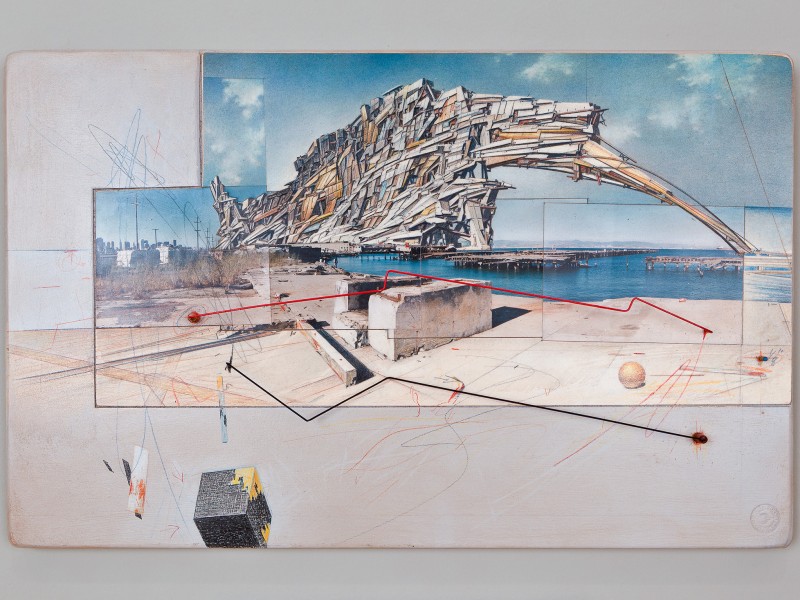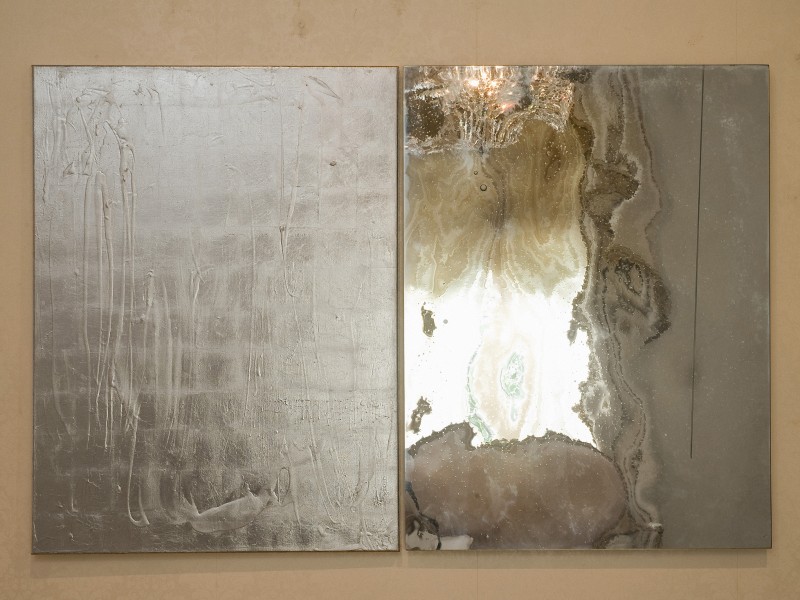In the current landscape of luxury fashion Artioli is something of an outlier.i It remains a thriving family-run business by continuing to do what it has always done: make hand-crafted shoes for men with passion and gusto.
Italian leatherwear in particular is well known for its centuries-old tradition starting with medieval urban guilds with small workshops producing high-quality goods. Bypassing economic and business trends, Artioli retains a craft and philosophy of a bygone era whilst simultaneously catering to the 21st century consumer. Wisdom is passed down from father to son, but there remains a continued focus on improved techniques and refined design for its clientele.
I spoke to Andrea Artioli, the CEO, on the phone on a Friday morning. He was in Tradate, a beautiful town surrounded by mountains, lakes, rivers and forest halfway between Milan and Lake Como, the home of Artioli shoes. “It is like paradise here” he said.
Paola Di Trocchio: This is the basis of your shoe production? Andrea Artioli: Yes, we produce our shoes here. We have a strong passion for our area and for our workers. They are true masters. They are the artists of this century, like the artists of renaissance who dedicated their life to art, to paintings, to sculptures, to architecture. The art of this century is fashion, it’s something you can touch and you can use in your life. It’s the new renaissance.
PD: How are they trained?
AA: Usually they start at a very young age, and they stay with us until their retirement. Sometimes they want to stay on and don’t want to retire. They are like members of the family.
PD: And when did you start making shoes?
AA: I’ll tell you a story. My grandfather started at just seven years old. One day he was all alone in the communal garden of the house where he lived, his neighbour saw him as he was preparing to return to work after lunch, collecting his bicycle from the communal garden, and he said to my grandfather, ‘Serverino, what are you doing here all alone?’ When Severino said ‘nothing’, the neighbour invited him to join him. My grandfather accepted. That was the beginning. The neighbor took him to his shop in town where he worked as a shoemaker and that’s how my grandfather started. In the morning he would go to school and in the afternoon he would count down the hours before it was time to go to work.
The shoemaker became his teacher and became like a father to him, since his father had passed away when he was four and because I knew this story, at the age of seven or eight I asked my grandfather if I could go to work with him in the afternoon, but he made me wait until I was older. When I turned fourteen, as a gift for my birthday, I asked him if he would allow me to work for him in the factory during the three month summer vacation, and he allowed me to start. I was so passionate.
PD: What are you so passionate about? Is it the craft, the form, the process, the finished product?
AA: Every single step from designing and production to business. I studied design in Milano and I studied marketing together with communication, always preparing myself for my business. But my grandfather and my father were my best professors in business and in life. They transmitted values to me like family, consideration for other people, ethics, the environment and the importance of caring for the environment for the next generation. That is why our shoes are completely natural. We don’t use chemicals in our production. First of all because of our values, but most of all because we believe that if the product is completely natural, it allows the energy to enter our bodies and to live in a better, healthy and more energetic way.
PD: Has it been difficult to maintain these traditional, family based values and bring them into the 21st century when the fashion industry has changed so much?
AA: Yes, it is not easy because sometimes, profits, margins, everything, is geared towards making products in a faster, more industrial and economical way, but I could say that because of the values we have, we can make the best products in the world, even if they are expensive. It’s like a circle. We believe this energy will come back and allow us to live a better life. Sometimes our customers say to me, Andrea, from the time I started wearing your shoes, I feel better, my life has changed for better. I take happiness from this.
PD: You have customers all over the world?
AA: All over the world, including Europe, America, Russia, the Middle East, Africa, in different parts of Asia, all over, because I really like to travel and to get to know new people and cultures. When we design, we think of our customers, each of them with different lives. They are all leaders, but they are all leaders of different fields with varied tastes, therefore we need to make shoes for many characters. I think about my customer and how he will dress and create shoes to match what he will wear. This is why we create different styles, because in many different styles, he will find the one that will perfectly match his wardrobe. The shoe will match the way he dresses, the way he is and also, the activity he is dressing for. A man dresses differently for business and for pleasure, which is why I introduced the casual shoe, a sneaker line for sport, and then bags and leather accessories to accompany the lives of people and add ease to their life. You know I believe that shoes are like the instrument in an orchestra. The other instruments are like the other parts of the wardrobe and together they have to play the same music.
PD: And all your shoes are handmade?
AA: They are all handmade. But even if they are handmade there is a lot of research into new techniques.
PD: How would you define luxury?
AA: Luxury is the ability to buy the best the world can offer. This is luxury. But of course you need to have that possibility. Sometimes I feel sorry because I’m not able to offer the same to everyone. I believe that luxury is also to have those possibilities and to do your best all your life, but always to maintain your values. This is another luxury, because in life, if you attain possibility by going against your values, this is not real luxury, this is artificial luxury.
PD: And what about the future of Artioli? Will it always remain a family company?
AA: Yes, I think about Artioli not really as a business, but as an artwork, and if you go public it’s like a virus that will take a business to an economic way of thinking. Instead, I prefer to think of my Artioli as something to share with others, and that we contribute to society in the best way we can, by doing what we know and what we love. When I talk to my children, I tell them to prepare themselves to do the best they can to contribute well in our society. There is no better way to be really happy, this is how we believe.
PD: It sounds like your business philosophy and your life philosophy are closely entwined.
AA: We try. This is what my grandfather and my father taught me. And I’m trying to teach to my three sons.
PD: Are they interested in continuing in the family business?
AA: They are very interested. My older son will spend the summer working with me. He is sixteen now and in Italy you have to be sixteen to work. This summer my son can finally come to work.
For more visit www.artioli.com
Related Features
-
49
-
-
-

